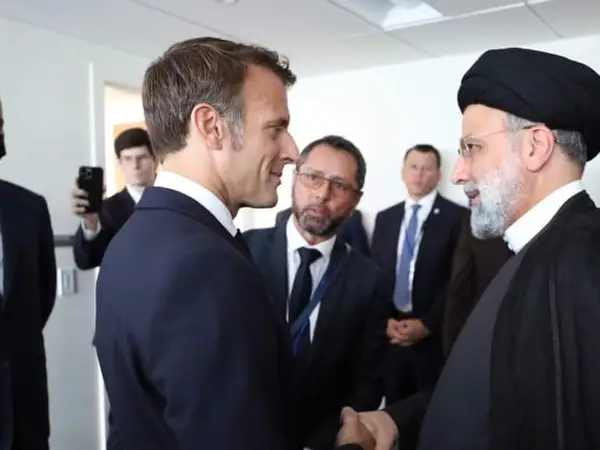Joe Biden and Ebrahim Raisi are due to address the United Nations General Assembly Wednesday but there will be no direct meeting between the two presidents.
Raisi in an interview last week with CBS’s ‘60 Minutes’ program ruled out a “face to face” with Biden in New York. On Tuesday he met French President Macron, who then reiterated to journalists that Paris expected Tehran to shift in talks over reviving the JCPOA (Joint Comprehensive Plan of Action), the 2015 UN-endorsed agreement lifting international sanctions and limiting the Iran nuclear program.
Iran’s Foreign Minister Hossein Amir-Abdollahian met foreign ministers from Qatar, Lebanon and South Korea on Monday. Qatar’s Deputy Prime Minister and Foreign Minister Mohammed bin Abdulrahman bin Jassim Al Thani tweeted Tuesday they had discussed “the latest developments in the negotiations to return to the Joint Action Plan [sic] with the US.” The minister said he was “looking forward to our cooperative efforts in this regard.”
With talks apparently on hold to revive the JCPOA, US National Security Advisor Jake Sullivan told reporters Tuesday Washington did “not expect a breakthrough” at the UN General Assembly but was still “open to both sides resuming compliance with the accord.” US officials have argued that after 18 months of talks Iran has hardened its stance since early August.
While accepting that President Donald Trump’s 2018 decision to leave the JCPOA led Iran to expand its nuclear program beyond the agreement’s limits, the Biden administration has continued Trump-era sanctions, which target third parties globally, to weaken Iran. Raisi was himself sanctioned in 2019 under a Trump executive order over links to the office of Iran’s leader Ali Khamenei.
Raisi reiterates need for ‘guarantees’
Following his meeting with Macron, Raisi’s office said he had restated Iran’s belief the JCPOA could not be revived without the International Atomic Energy Agency ending enquiries into Tehran’s nuclear work before 2003. Raisi also reiterated as “reasonable and logical,” Iran’s demand for guarantees that it would be cushioned againstharmful fall-out should the US leave a revived JCPOA.
In a television interview Friday with the al-Jazeera network at the Shanghai Cooperation Organization summit in Samarkand, Raisi argued Iran was countering US ‘maximum pressure’ through developing economic links with “independent countries” and boosting its own domestic industry.
In The Hague, the International Court of Justice (ICJ), the UN body known as the World Court, was told by Iranian lawyers Monday that the US had flouted international law in creating an “industry of litigation” against Tehran.
The case goes back to 2016, when Iran went to the ICJ after the US Supreme Court ordered $2 billion in Iranian assets seized and given to survivors, or relatives of those killed, in attacks including the 1983 Beirut bombing of US troops following the Israeli invasion. Washington holds Iran responsible. The court hearing continues until Friday.
